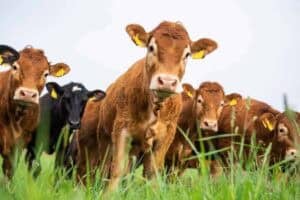Female farmers will be prioritised and those who already receive government support will be excluded from the programme.

Applications for access to the R1.2 billion Covid-19 disaster fund established as an intervention in the agricultural sector to assist small-scale farmers will open on Wednesday, 8 April and close on 22 April 2020.
During a media briefing held on Monday to unpack details of this allocation, Minister Thoko Didiza outlined the strict criteria outlined to identify those in need of funding.
Applications for funding can be made online or submitted directly to the department of agriculture, forestry and fisheries offices.
Of the R1.2 billion, R400 million will be set aside for farmers within the Proactive Land Acquisition Strategy programme and the remainder will be distributed according to specific criteria.
Funding will only be made available to South African citizens who have been actively involved in the farming of poultry, vegetables, fruits, livestock and winter field crops and who are currently in production or have been for a minimum of 12 months. Those looking to apply for funding must also be registered on their province’s farmer database.
Lastly, only those with an annual turnover of between R20,000 and R1 million annually qualify.
Didiza said farmers must note that the relief is not for the payment of debt but must be used to assist with the challenges currently facing farmers for food production purposes.
She explained that the relief would function as a grant and be distributed in the form of food vouchers, not cash, and that specific retailers would assist in processing these.
According to Didiza, female farmers will be prioritised and farmers who already receive government support would be excluded from the programme.
The minister urged all employers within the sector to fully comply with all the applicable prescripts and said all stakeholders within the sector had a mandate to ensure there was access to sufficient, safe and nutritious food.
As such, Didiza once again cautioned against panic buying before stating that the act of panic buying itself was what created an artificial shortage in the first place.
“Food is being produced at farm level and deliveries are being made to wholesale retailers and other critical distribution points.”
The minister confirmed that the food production value chain was being tracked in order to identify and deal with bottlenecks as and when they sprung up.
https://www.facebook.com/GovernmentZA/videos/531978444130354/
For more news your way, download The Citizen’s app for iOS and Android.






